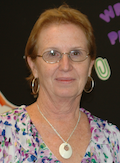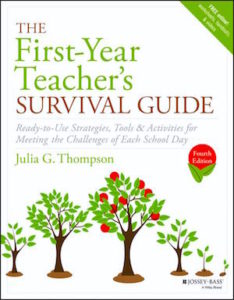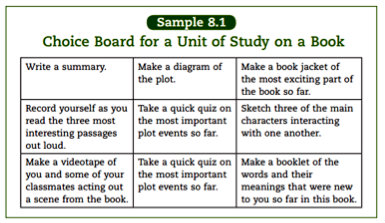Essential Reading for First Year Teachers
The First-Year Teacher’s Survival Guide: Ready-to-Use Strategies, Tools & Activities for Meeting the Challenges of Each School Day, 4th Edition
By Julia G. Thompson
(Wiley, 2018 – Learn more)

Free yourself! Free yourself from staying up almost all night trying to find ways to differentiate your lesson plans, to establish a positive relationship with parents or guardians, or to prevent discipline problems in your classroom.
Free yourself from searching the Internet for hours and hours to locate ideas, worksheets, behavior plans, and videos to help you…tomorrow. Free yourself from wondering if every teacher feels the same queasiness in the “pit of their stomach” as you do.

News alert! This isn’t a beach read. However, it will be your “go to” reference book – all 512 pages. My advice: first skim through the book to get better acquainted with the book’s setup and offerings. Check out the table of contents and the five categories:
- Learn the Skills Necessary to Become a Professional Educator
- Establish a Productive Classroom Environment
- Teach the Whole Child
- Use Effective Instructional Practices
- Create a Well-Managed Discipline Climate
Within the five categories are pages of templates, worksheets, ideas, strategies, websites, practical advice, and forms for record keeping. This updated text has been created based on feedback from teachers and includes but is not limited to:
- How to take charge of your own professional growth
- Helping students develop a growth mindset
- Incorporating social and emotional learning into your teaching
- Establishing a positive role in your interactions with colleagues, students, and parents
- Effective discipline techniques/preventing possible discipline situations
As educators, our job is overwhelming and underrated. We are the MOST significant factor in a child’s schooling. Think about it. We are there to support them, educate them, be there as a sounding board, offer advice as needed, and educate ourselves to be better teachers along the way. This book is all about that.
Teaching in the 21st century
Before launching into the nuts and bolts of teaching (i.e. lesson planning, units, etc.), Thompson explains what it is like to be an educator in the twenty-first century. She speaks of the challenges, responsibilities, frustrations, and rewards. She reminds us that all teachers and supporting educators are experiencing the same feelings.
The first chapter begins with what teaching is all about. It’s about the joy in knowing that you have changed a student’s life or inspired them to challenge their thinking and learning. It’s also about being a lifelong learner and stepping out of your comfort zone. Thompson notes professional development options such as attending edcamps, establishing your own PLN (professional learning network), observing other colleagues and having colleagues take a “snapshot” visit of your classroom, setting professional goals, and establishing reflective practice.
Teaching is about sharing your content knowledge but also your professional expertise. Teaching is about reflective practice. Tidbits of advice from teachers are included throughout the book, from newbie teachers with two years of experience…
Take an interest in what’s going on in your students’ lives…These little conversations go a long way in letting students know that you care about them, and once those relationships are established, students will buy wholeheartedly into your teaching, guidance, and leadership.” Jeff Vande Sande (2 years’ experience)
…to teachers with over forty years experience…
Teach your students with confidence. Instill the confidence in them that they will be prepared. Don’t let your anxiety about tests transfer to students.” (Luann West Scott, 42 years’ experience)
Questions prompt deliberate and contemplative thinking
At the end of each chapter are questions that will guide your thinking about what you read, questions to discuss with colleagues, and topics to discuss with your mentor.
Sometimes when you meet with a mentor, administrator, or colleague, you have questions or thoughts but don’t know where to begin. These questions prompt deliberate and contemplative thinking that will assist you as you navigate roadblocks that may pop up. Topical guides and questions at the end of the chapters will aid in forming your thoughts and questions.
- Traditional tests and quizzes can be useful assessment. How can you maximize their effectiveness? How can your colleagues help you with this? (p. 353)
- When do you find it difficult to be consistent in class? What has made you aware of this? How can you become more consistent in how you manage your classroom? (p.393)

The First-Year Teacher’s Survival Guide offers a plethora of ideas to help you navigate the ever changing world of teaching and is designed to help ease the pressures and demands of day-to-day teaching. I would recommend it for any and every teacher, coach, administrator, and student teacher. Enjoy!
A fifth edition, written with Michelle Cummings, was published in 2024.
A year into her retirement from teaching fourth graders, Linda Biondi will supervise preservice and student teachers at The College of New Jersey this fall. Over the summer she co-facilitated a weeklong writing institute in conjunction with the National Writing Project at Rider University. She volunteers for two service organizations: Homefront and Dress for Success of Central New Jersey – both have a mission to end poverty and homelessness. The mission of Dress for Success is to empower women to achieve through economic independence.


































